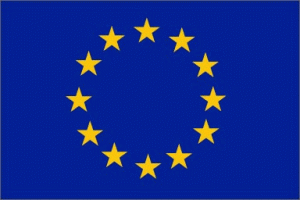 The European Commission has announced a new policy that will require open access to articles funded through its “Horizon 2020” program, an €80 billion initiative to drive research, innovation and competitiveness throughout the continent. The policy recommends that Member states consider their own open access policies for government funded research, and sets a goal of having 60% of publicly funded research articles available under open access by 2016. Additionally, the Commission will fund further research into projects related to open access and swill spend €45 million on data infrastructure and digital preservation.
The European Commission has announced a new policy that will require open access to articles funded through its “Horizon 2020” program, an €80 billion initiative to drive research, innovation and competitiveness throughout the continent. The policy recommends that Member states consider their own open access policies for government funded research, and sets a goal of having 60% of publicly funded research articles available under open access by 2016. Additionally, the Commission will fund further research into projects related to open access and swill spend €45 million on data infrastructure and digital preservation.
The announcement predicts that the open access policy will help researchers and the public at large a greater return on their investment in R&D. According to the press release:
As a first step, the Commission will make open access to scientific publications a general principle of Horizon 2020, the EU’s Research & Innovation funding programme for 2014-2020. As of 2014, all articles produced with funding from Horizon 2020 will have to be accessible:
- articles will either immediately be made accessible online by the publisher (‘Gold’ open access) – up-front publication costs can be eligible for reimbursement by the European Commission; or
- researchers will make their articles available through an open access repository no later than six months (12 months for articles in the fields of social sciences and humanities) after publication (‘Green’ open access).
The Commission held a public consultation last year on access to scientific literature, and 81% of respondents said that the state of access needed improvement. A recent study cited in the press release “showed that currently only 25% of researchers share their data openly.”
SPARC Europe issued a statement that it “warmly welcomes the support and policy direction for Open Access in these documents. As the Communication states, the speed of scientific progress, the return on investment in R&D and maximising access to knowledge for European citizens are all at stake.”
A Reuters story predicted that the move could “force a major change in the business model for publishers such as Reed Elsevier,” which still represent the vast majority of the publishing market.




